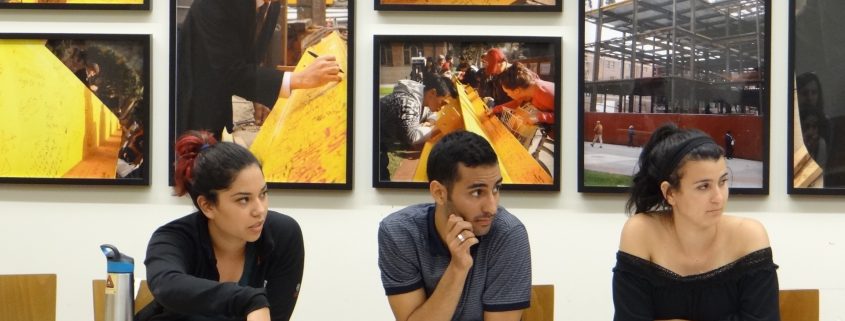USG considers additional staff for vacant positions
The Undergraduate Student Government senators discussed how to fill vacant USG staff positions during Tuesday’s Senate meeting.
The main vacancy under discussion was for the director of academic affairs in the advocacy branch. The previous director of academic affairs, Sarah Dhanaphatana, resigned after accepting a full time internship. USG Vice President Austin Dunn nominated current Assistant Director of Philanthropy Fund Maariyah Patel for the position. He asked that the Senate vote confirm the nomination immediately, instead of voting on the issue at the next meeting, as is customary.
When pressed by Sen. Sabrina Enriquez to explain the need for urgency, Dunn said that the position of director of academic affairs was one of the five most important positions in the advocacy branch. Failing to expedite the vote, Dunn said, would cause the process to take up to three weeks, impeding the initiatives that the advocacy branch intends to take on this semester.
Though Patel’s appointment would leave her current position in the funding branch vacant, that and other vacancies would be filled through an application set to be released at a later time. Those appointments will be made with greater transparency than last semester, in which then-Assistant Director of Elections and Recruitment Keith Keer filed a complaint about alleged cronyism in the hiring process.
When asked if he and USG President Edwin Saucedo had considered other candidates before deciding to nominate Patel, Dunn said that only Patel and another assistant director had expressed interest in the position and stressed that Patel’s advocacy experience qualified her for the position.
“We were only considering people internally,” Dunn said. “This decision was made because we were fairly confident that, given [Patel’s] advocacy experience … [which] exceeds that of any other member of the advocacy branch currently, it was going to be a pretty easy decision.”
Patel began working in USG her freshman year, and previously served as the assistant director of academic affairs, as well as co-director of University Affairs alongside Dunn. When Sen. Kate Oh asked Patel why she wanted to move to the advocacy branch from her current position, Patel spoke about her years of experience in academic affairs.
“I was in charge of academic policy and I was the one to pass the drop resolution that allowed students to not receive a ‘W’ until the seventh week, as well as change ‘Letter Grade’ to ‘Pass/Fail,’ so I have plenty of experience with administrations that are still in place and that I still have contact with,” Patel said.
The motion for an immediate confirmation of Patel’s hire failed to reach the two-thirds threshold to pass, with five senators for and five against. The confirmation vote is scheduled to take place at the next Senate meeting.
During the questioning process, Patel expressed surprise at the amount of scrutiny given to her hire by the senators. Oh later said that though the typical procedure is to immediately confirm the appointments, senators were more hesitant to make a decision with Patel’s appointment given the accusations of cronyism against the funding board hires made at the end of last semester.
“Due to the experience we had as Senate last semester, I feel like we’re being far more cautious about our decisions,” Oh said. “It’s just us being more cautious and making sure that these appointments are the right appointments.”
Last semester, after the Senate had already confirmed the funding branch appointments made by Saucedo, it was brought to Oh’s and Enriquez’s attention that the funding board appointees were predominantly male, Oh said. Following those concerns, they looked more closely at the applications and began to suspect bias in the hiring process.
“It was because we were rushed into voting to suspend [parliamentary procedure], and with that, we appointed people to their positions without knowing much about the individuals who were appointed to the position, or why they were appointed for those positions, or why they were qualified to lead in those positions,” Oh said.
In response to these concerns, the Senators voted to reverse their decision to confirm the appointments. However, their subsequent attempt to appeal the confirmation failed, so the funding board hires remained unaffected.
Oh said USG should look to increase transparency in its hiring process in order to avoid similar allegations in the future.
“I think that’s a job for not only Senate, but the president and VP. Greater transparency in the organization is never a bad thing,” Oh said. “I think there has to be communication and trust within each department, so that we can all function smoothly and effectively.”

